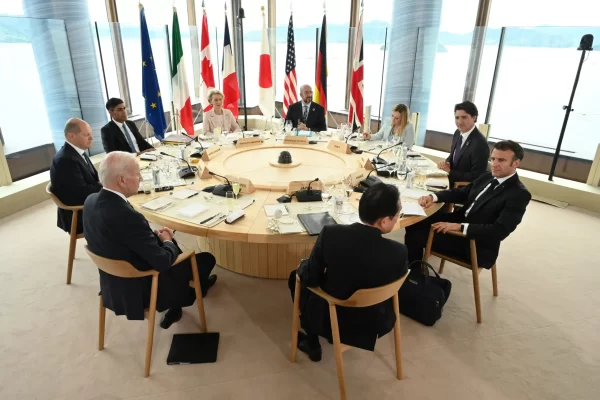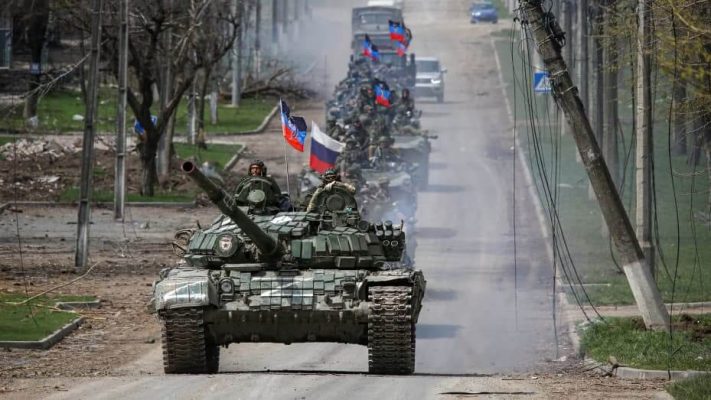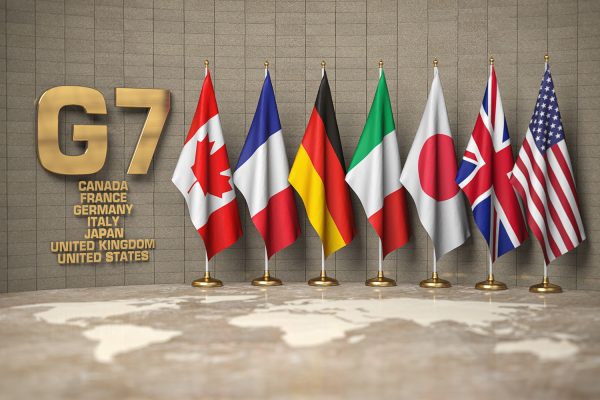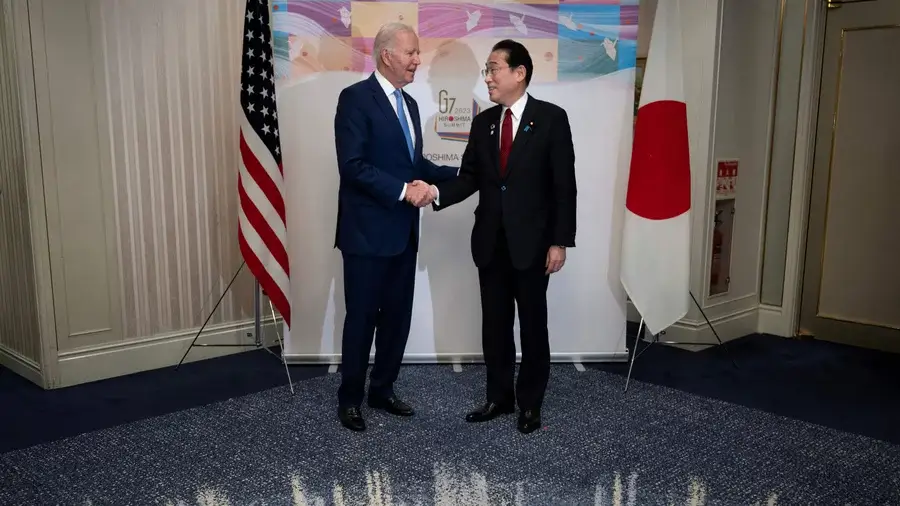G-7 Tightens Economic Sanctions on Russia over Ukraine Conflict
The G-7 nations have intensified their economic sanctions on Russia as a response to its military actions in Ukraine. These measures, aimed at increasing economic pressure on Russia, involve blocklisting numerous companies and individuals, as well as restricting Russia’s access to vital goods.
The G-7 leaders are expected to make public statements regarding these actions during their summit in Hiroshima, Japan.
G-7’s Strategic Effort to Curb Russian Actions
In an effort to exert more significant economic influence, each G-7 country has developed its own plan to address Russia’s aggression towards Ukraine.
The United States, for instance, intends to blocklist around 70 companies and organizations involved in selling restricted U.S. products to Russia. This move aims to limit Russia’s access to goods crucial for their battlefield capabilities.
Additionally, the U.S. plans to sever financial ties with approximately 300 individuals, entities, vessels, and aircraft from various regions for evading U.S. economic sanctions on Russia imposed.
You may also like: Supporting Ukraine – Ways to Help a Country in Need.

Challenges in Enforcing Economic Sanctions on Russia
Despite existing sanctions that have been in place since the conflict began, Russia has managed to find ways to evade restrictions and acquire necessary products and financing.
One example is the surge in washing machine imports, which are being disassembled to extract microchips for potential use in missile production or other weapons.
This adaptation by Russia demonstrates the challenges faced in enforcing sanctions effectively.
The Gradual Impact of Economic Sanctions on Russia
Experts acknowledge that the impact of the sanctions is gradual and not immediately visible on the battlefield. While Russia has not withdrawn from the war, the sanctions regime has already begun to affect the country.
Former officials point out that the slow-burn effect of these measures is distinct from the instant impact of military operations.

The United States Blocklisting Measures
The United States will impose blocklisting measures on approximately 70 entities involved in selling restricted U.S. products to Russia.
By designating these organizations as prohibited trading partners, the U.S. aims to limit Russia’s access to goods. That significantly contributes to its battlefield capabilities. These steps reflect a substantial effort to intensify economic pressure on Russia.
Severing Financial Ties
In addition to the blocklisting measures, the United States plans to sever financial connections with approximately 300 individuals, entities, vessels, and aircraft.
That has been evading U.S. sanctions imposed on Russia. These actions extend beyond European borders, encompassing individuals and companies from Europe, the Middle East, and Asia.
By cutting off access to the U.S. financial system, the aim is to disrupt illicit financial activities. And further, limit Russia’s maneuverability.
The G-7 countries’ decision to tighten economic sanctions on Russia for its war on Ukraine reflects their collective efforts to increase pressure on the aggressor. These measures include blocklisting entities involved in prohibited trading and severing financial ties with those circumventing sanctions.
Although the impact may be gradual. The objective is to restrict Russia’s access to critical resources and discourage its military actions.
Are G7 Allies?
The G7, also known as the Group of Seven consists of seven economies as defined by the International Monetary Fund (IMF). These nations include Canada, France, Germany, Italy, Japan, the United Kingdom and the United States.
Additionally the European Union is also represented within this group. The G7 members share interests and democratic values and come together primarily to discuss and coordinate economic policies and global matters.
While they often find ground on issues it’s important to note that the G7 is not a military alliance, like NATO. Rather it serves as a platform aimed at addressing economic and political challenges faced by industrialized nations worldwide.

When Did G7 Form?
The G7 was established in 1975 as a response, to the instability and energy crisis of the 1970s. It all started when the finance ministers of France, Germany the United States, the United Kingdom and Japan held their meeting in 1973.
This initial gathering laid the foundation for the creation of the G7 with Italy and Canada joining. The primary objective at that time was to promote cooperation and consultation following the oil crisis of 1973. Over time this assembly of democracies has expanded its scope beyond economic matters and now serves as a platform, for addressing an array of global issues.





